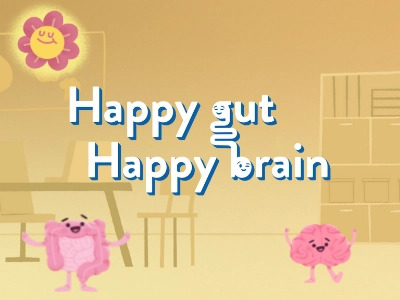Similac Gain Stage 3
- Main Image
-

- Subtitle
- From 1 Year Onwards
- Title
- Similac® Gain Stage 3
- Detail Page Path
Nourishing & nurturing this gut microbiome with the right nutrients has advantages beyond preventing tummy troubles such as constipation, burping, farting et al. What you feed a tiny gut, feeds the brain, remember!
Key linkages between nutrition and the functioning of gut microbiome:
A healthy gut supports optimal digestion and absorption making nutrients available for growth. These include providing DHA for brain and eye development as well as Lutein, which forms an integral part of the eye’s retina as well as Natural Vitamin E, a key antioxidant. Palm oil free milk formulas have been scientifically shown to improve calcium, fat & DHA absorption from the gut.
A healthy gut also supports strong interaction with the immune system cells embedded in it to and help to confine allergens in the gut to later expel them out of the system. This gut-immune cell interaction and helps modify the way our immune cells behave, enabling reduction of allergic reactions.
‘Good’ gut bacteria or probiotics multiply in the gut with the provision of the right nutrition – after all, the more the merrier when it comes to the positive role they play in our gut!
The ‘good’ gut bacteria go further to breakdown the undigestible but beneficial prebiotic fibres – 2’FL; GOS and FOS – releasing ‘special fuels’ which become neuro-messengers. Some of these ‘special fuels’ stimulate the vagus nerve, strengthening nerve connections, carrying messages to the brain, and enhancing cognitive functions such as learning, memory & mood.
Studies also suggest that the gut microbiota impact how we behave and react. Imagine – a well behaved, well trained toddler!!! May seem miraculous? Not so far-fetched though.
Feeding your little one with the right nutrients, at the right time, supports a happy and healthy gut that positively impacts your his nourishment, growth and development, including that of the brain. No wonder then nutrition for these tiny tots is both, an art and a science. But it’s worth the effort as it brings invaluable moments of well-deserved satisfaction for new Mums and Dads.



References:
1. Togini P (2017). Gut Microbiota: A Potential Regulator of Neurodevelopment. Front. Cell. Neurosci. 11:25.
2. Cowan CSM, Dinan TG, Cryan JF. Annual Research Review: Critical windows – the microbiota-gut-brain axis in neurocognitive development. Journal of Child Psychology and Psychiatry. 2020 Mar, 61:3 pp 353-371.
3. Jena A, et al. (2020) Gut-Brain Axis in the Early Postnatal Years of Life: A Developmental Perspective. Front. Integr. Neurosci. 14:44.
4. Vazquez E, et al. (2016) Dietary 2’-Fucosyllactose Enhances Operant Conditioning and Long-Term Potentiation via GutBrain Communication through the Vagus Nerve in Rodents. PLoS ONE 11(11): e0166070.
5. Berger PK, et al. (2020) Human milk oligosaccharide 2’-fucosyllactose links feedings at 1 month to cognitive development at 24 months in infants of normal and overweight mothers. PLoS ONE 15(2): e0228323.
6. Goldman BD, et al. Infant Gut Microbiome Associated With Cognitive Development. Biol Psychiatry. 2018 Jan 15;83(2):148-159.
SG.2021.19367.SIM.1
You are about to exit for another Abbott country or region specific website.
Please be aware that the website you have requested is intended for the residents of a particular country or region, as noted on that site. As a result, the site may contain information on pharmaceuticals, medical devices and other products or uses of those products that are not approved in other countries or regions.
The website you have requested also may not be optimized for your specific screen size.
Do you wish to continue and exit this website?